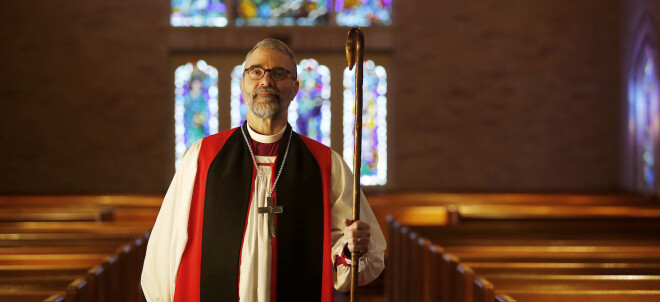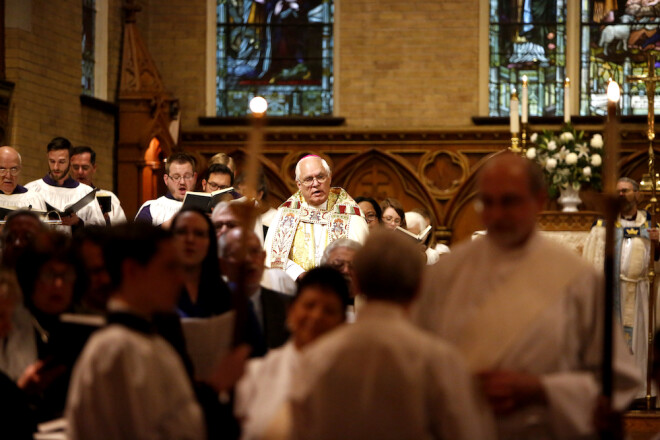We have in this series set out the importance of Antioch to the spread of Christianity, looked at how Barnabas became the bridge between Jerusalem and Antioch, explored the ideas that shaped the Christian message in that city, and explained the character of the city and why the Christian message proved to be attractive to many of its inhabitants. In this installment, we will consider how the followers of Jesus translated their faith into action – how the message shaped the mission.
The Importance of relationships
Modern studies of new religious movements have shown the importance of relationships to growth of the movement in question. Doctrines, ideas that are unique to the movement, become increasingly important over time. But in the beginning, relationship building appears to take precedence and is the key to success.
We can see this in the case of the new church in Antioch. The first followers of Jesus to reach out to their non-Jewish neighbors were themselves strangers in a strange new context: they are described by Luke as “certain men from Cyprus and Cyrene”. In other words, these people were new to the city and, like all newcomers, were looking for new friends and connections.
As we have seen in earlier episodes, Antioch (like all ancient cities) was filled with men and women in the same circumstance. The cities were in constant flux, and the in-flow of newcomers was necessary to sustain the city in the face of the spread of disease, poor diets, bad water, and violence. Without newcomers the cities would cease to function.
The Christians at Antioch were open to establishing new relationships: this was perhaps the most important thing about them as they settled into their new homes.
It is also worth noticing that, when he started his movement, Jesus himself emphasized the importance of relationships. Jesus and the Twelve kept close company and traveled and worked together. When Jesus experimented with sending them out to extend his work, he sent them two-by-two. (Matthew 10) He even told them not to take additional food and clothing with them but to live and eat as the locals did wherever they went. In short, they were to build relationships.
The Jesus followers who came to Antioch were simply living as Jesus had taught them. They were not professional missionaries. They were people finding friends and making friends, and introducing them to their greatest Friend.
Generosity of Spirit
As Luke tells the story of Antioch he quickly comes to a significant point about their life. It is an illuminating point. Beginning at Acts 11.27, Luke relates that a prophet (preacher) from Jerusalem came to Antioch and forecasted a coming famine. The prophet’s name was Agabus and his principal concern seems to have been with how this famine would impact Jerusalem and the surrounding area of Judea. It appears that almost immediately the church at Antioch sprang into action.
Luke says, “the disciples determined, every one according to his ability, to send relief to the brethren who lived in Judea”. (11.29) They took up a collection! To our modern minds this act of generosity may seem in some sense natural: we are accustomed to relief efforts in the aftermath of natural disasters and food shortages. In the ancient world (and still in many parts of the world today) such generosity was rare, however.
Reaching out to help the needy was a hallmark of the church at Antioch. In time, it became the hallmark of the Christian life. In the next century (about 125 AD), a Christian writer named Justin explained the change of heart he and his co-religionists experienced:
“We who used to value the acquisition of wealth and possessions more than anything else now bring what we have into a common fund and share it with anyone who needs it. We used to hate and destroy one another and refused to associate with people of another race or country. Now, because of Christ, we live together with such people and pray for our enemies.”
Tertullian, writing a hundred years after Justin (about 250 AD), summed up the pagan view of Christians: “See how they love each other” was the frequent pagan comment He noted that Christians regularly take up collections from their members to help “support and bury poor people,” to support “boys and girls” who are poor or who have been orphaned, and to minister to old people who have become confined to their homes. In another hundred years (about 360 AD), an Emperor who despised Christians and who tried to re-establish pagan society wrote that the priests of the old religion should imitate the Christians: “[who] support not only their own poor but ours as well.” (Julian)
The Christians at Antioch may have been admirable for their giving, but this was not just a one-off action. We may recall that it was a concern of the original church at Jerusalem as well: it is what led Peter and the Twelve to call for the setting apart of deacons to care for the widows and orphans, and the poor. (Acts 6.1-6) Indeed, Barnabas himself, who became the “pastor” of the Antiochian community, was well known for his own generosity while living in Jerusalem. (Acts 4.36)
But surely the impetus for Christian generosity goes back to Jesus. At the same time he was preparing to send out the Twelve to extend his ministry, Jesus had said, “You freely received, freely give.” (Matthew 10.8) And in one of his most memorable parables, offered just before his death, he taught that giving to the hungry and thirsty was tantamount to giving to him! (Matthew 25.31-46)
The generosity demonstrated by the Christians at Antioch, or at any other place, was not a tactic intended to impress. It grew out of the heart – or Spirit! It was, as someone has said, “an attitude of gratitude.” They had truly received a new life through Jesus. Of course, they must give to others.
Uncommon Courage
We have already noted the courage of the Christians at Antioch: they were willing to stand out from the crowds. Even the name “Christian” was a derogatory epithet applied to them by their neighbors, but one that the followers of Jesus were willing to adopt.
There is another aspect to the courage demonstrated by the Christians, and one more difficult for us to grasp in our culture. We think of religion as primarily a personal decision. In the ancient world, religion had a much more public aspect to it. We know that for pagans, there were many gods. (The ancient poet Hesiod claimed there were 30,000!) Yet, each city and people had a particular god. So as an individual moved into a city like Antioch, he or she would be expected to venerate the god of that place in addition to whatever gods or spirits were honored previously. A person’s social identity – whether he or she was a good citizen – was tied up with honoring the local god (or gods).
Christians, like the Jews, only recognized one God, however. The God of Abraham was also the God of Jesus. Loyalty to this one God necessarily meant honoring Him over and against all other so-called deities. This brought the Christians especially into suspicion. Christians, ironically, were often accused of atheism by their pagan neighbors because they denied the local gods as real. The rejection of the pagan gods also implied for many that the Christians were anti-social – not trustworthy citizens.
Thus the profession of the Christian faith required a certain courage. Friends, neighbors and family often saw the Christians as enemies, strangers who were to be ostracized and maybe even a threat to the stability of the community at large.
Finally, the generosity of the Christians led to another kind of courage. It is well documented that the Christians in antiquity often reached out to the needy at times of plagues and other disasters. While others naturally tried to avoid being infected or affected by these calamities – they would run from danger – the Christians actually ministered to those in danger.
In one famous account of a plague, written by Thucydides (about 430 BC), the general populace looked out for themselves. The sick were abandoned. The dead were left where they had fallen. Those who could flee to the country did so. Others took advantage of the disorder to plunder their neighbors. Fear and despair brought cities to near collapse.
A very different picture is drawn by one Christian writer (about 250 AD): “Most of our brethren,” he wrote, “showed love and loyalty in not sparing themselves while helping one another, tending to the sick with no thought of danger and gladly departing this life with them after becoming infected with their disease.” Rather than caving in to despair and fear, their faith gave them strength and compassion, and they acted with dignity and true charity. (Dionysius of Alexandria)
It was their faith in Jesus – in a sense Jesus himself – that inspired their courage. Jesus, too, stood out from the crowds, brooked the opposition of others and even family, and was daring enough to touch lepers. Jesus had dared to confront a cruel and tortured death, to give his life as a ransom for many, and in the midst of this heroic act reach out to comfort a thief! Talk about courage.
From Message to mission
My point in considering these three aspects of the mission at Antioch has been to show how these Christians translated what they knew of Jesus into action. Remember, Luke says they “preached Jesus as Lord.” But It was more than words they preached – they proclaimed Jesus by what they did.
A few years ago, Christian young people wore little wrist bands with the letters WWJD – meaning “What Would Jesus Do? I think the Christians at Antioch asked the same question. In building relationships, giving to meet needs, and demonstrating courage, they were acting as Jesus had taught and acted during his earthly ministry.
Ancient Works cited:
Justin Martyr, First Apology, ch. XIV.
Tertullian, Apology, ch. 39.





